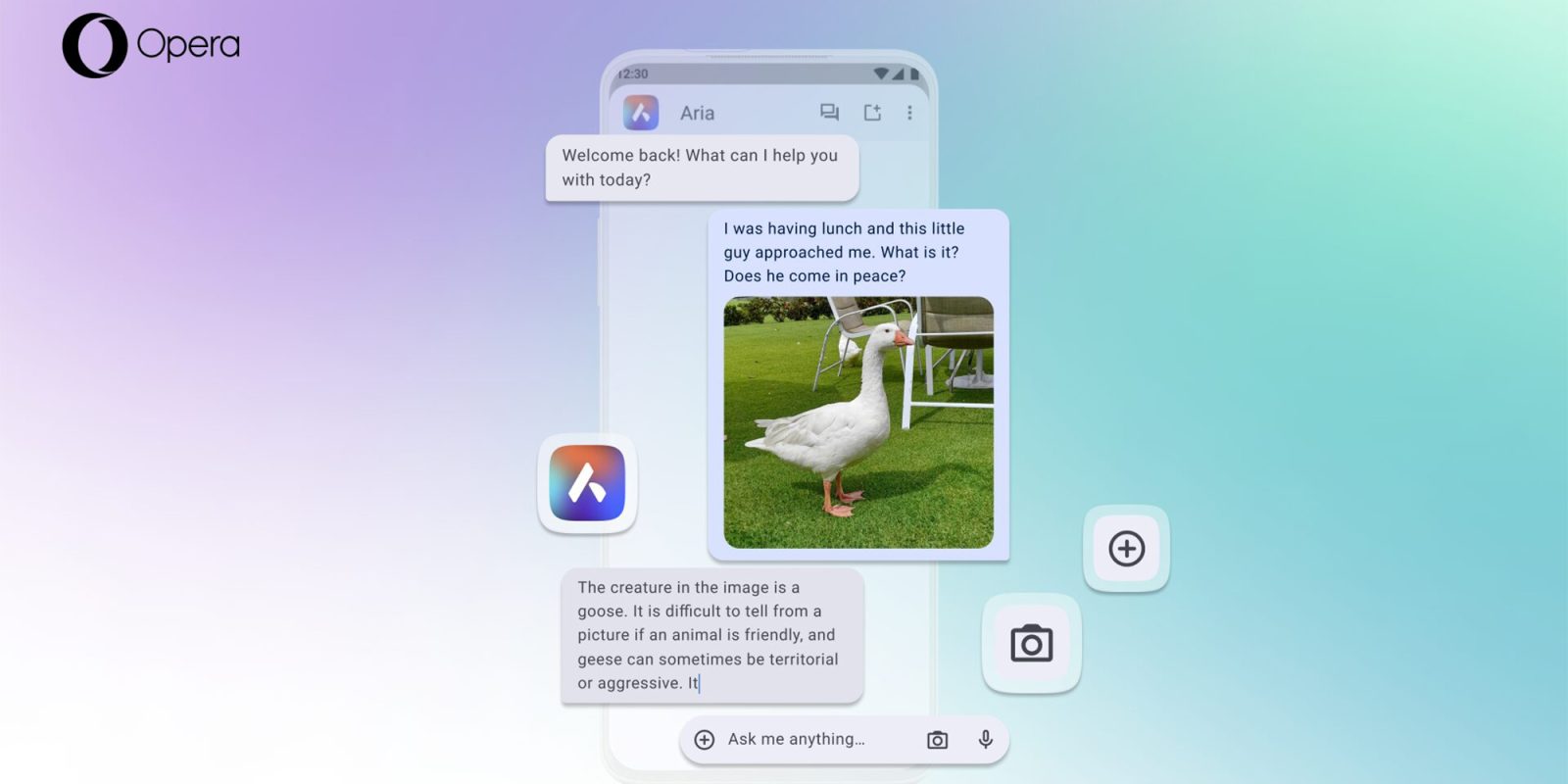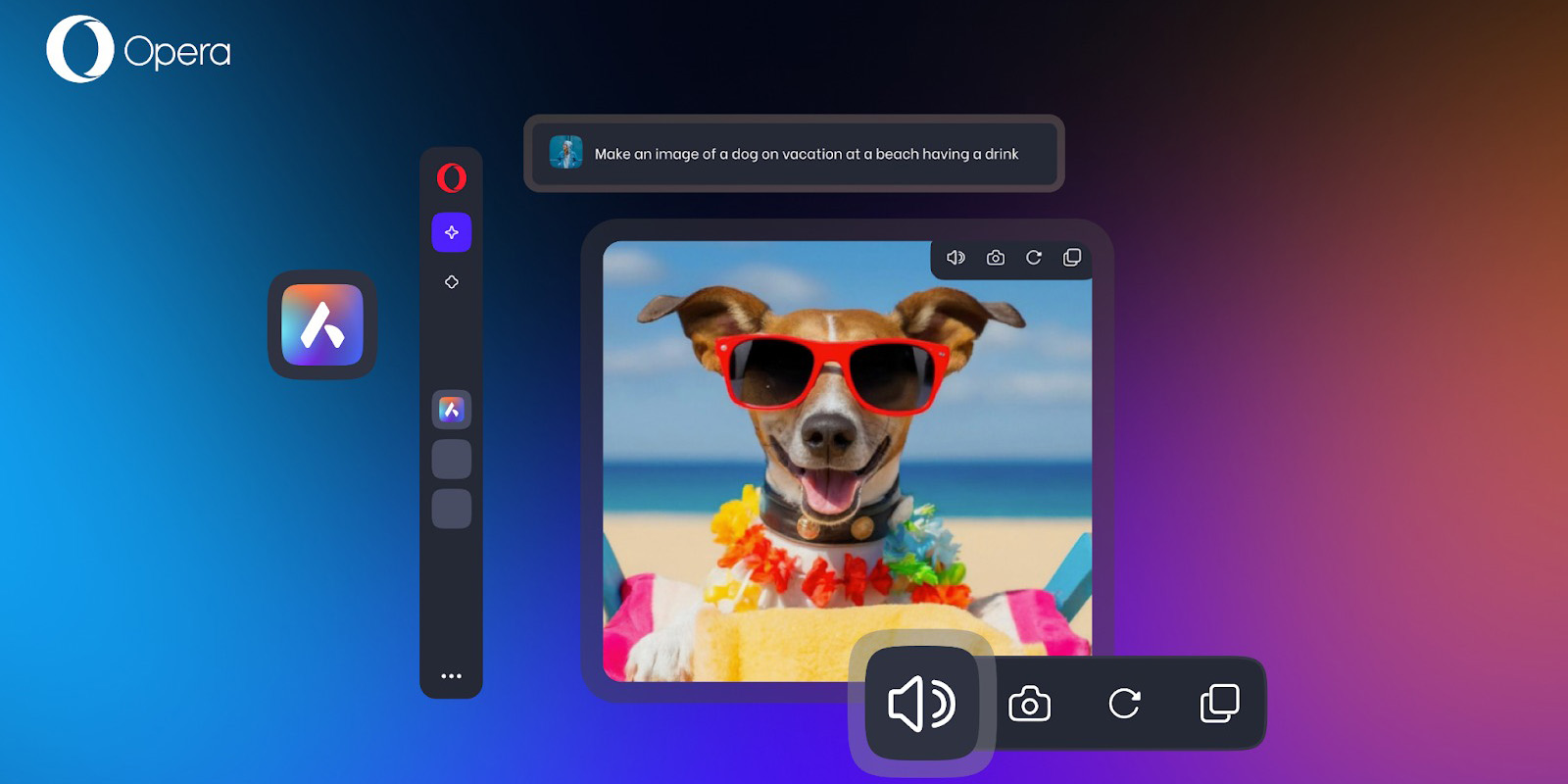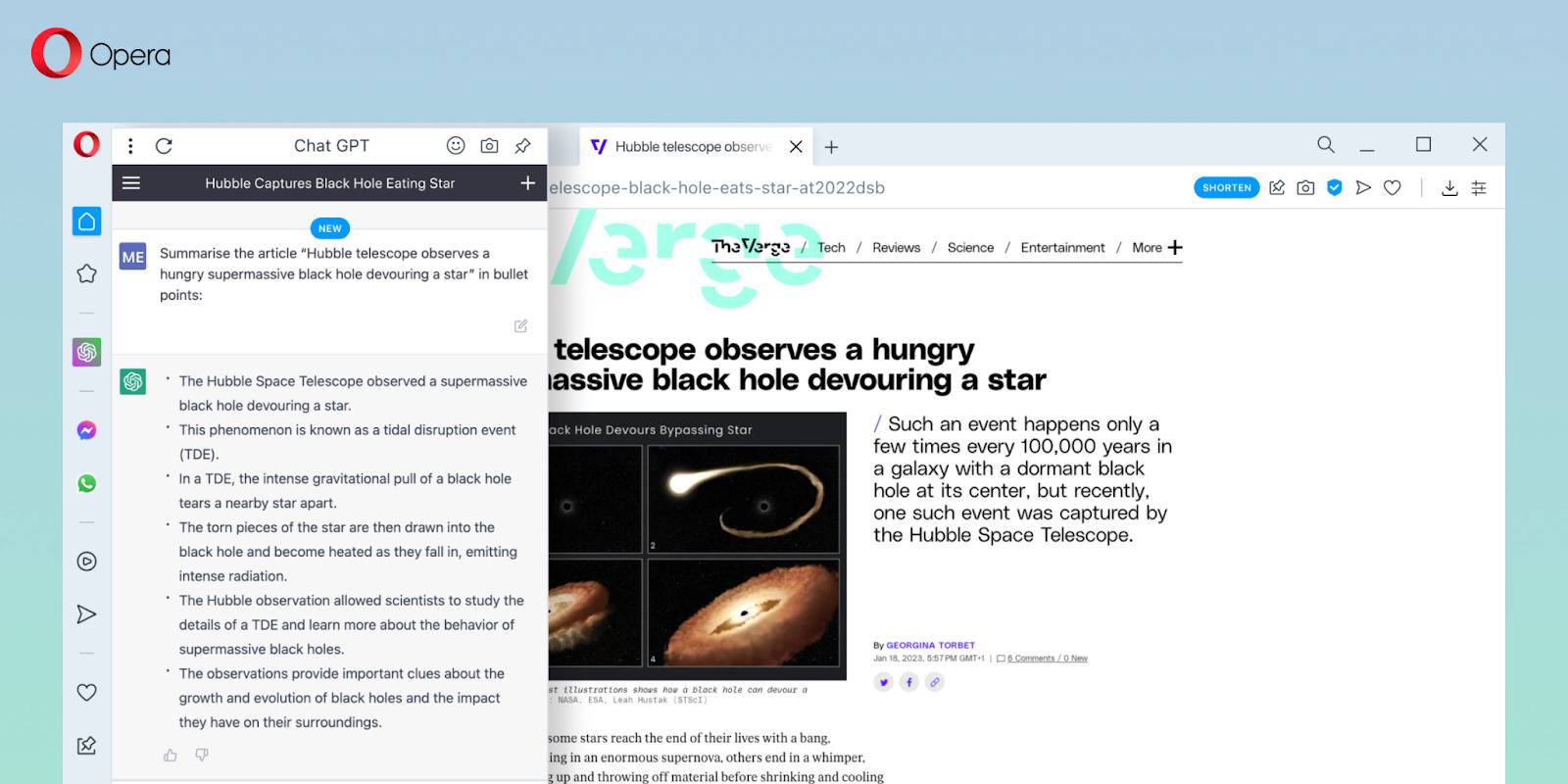
Opera for Android is now able to understand image context with AI
The Opera browser for Android now has the ability to understand image context after the function was initially unveiled for desktop versions of the application.
Expand Expanding Close
The Opera browser for Android now has the ability to understand image context after the function was initially unveiled for desktop versions of the application.
Expand Expanding Close
Google’s Gemini AI models aren’t just for the company’s own services, and they’re starting to be used more and more by other brands. Today, Opera has announced that it will use Gemini to power the browser’s AI features.
Expand Expanding Close
ChatGPT made a huge impact when it debuted in late 2022, and as 2023 has begun, AI has been a big deal for Big Tech. And now, it’s also restarting the browser wars, as Opera is adding direct integration with ChatGPT, challenging both Microsoft and Google.
Expand Expanding Close
As far as third-party browsers go, there are none that are fully optimized for Chromebooks and Chrome OS, that is until now with the popular Opera Browser.
Expand Expanding Close
Opera might not be able to match the install base or popularity of Google Chrome, but it now improves our internet safety by including a fee VPN service within the Android application.

Google Chrome is probably the browser 90% of Android users are using on a daily basis, but there are some excellent third-party options available. Opera has long been trying to reinvent the browser, and today it is unveiling its latest attempt with Opera Touch.

Google’s Allo messaging service often doesn’t get the attention it deserves, and that’s mainly because it’s not a very flexible option. When Allo finally debuted on the web, it still had some serious restrictions. Today, Google is expanding the service to more users.


VPN services can increase the security of your net connections when using public WiFi hotspots, as well as sometimes allow you to appear to be in a different country when accessing geo-limited services, but they usually cost money. Opera has today launched Free VPN, which is both free and unlimited …

Google Glass may not be welcomed at movie theaters, but the popular wearable computer is getting a free pass to an opera house in Italy during a show being performed in Cagliari later this week. On Wednesday, cast and crew members from an Italian opera company will wear Mountain View’s high-tech eyewear during a performance of Puccini’s Turandot.

Back in May, Opera released a ‘sneak peak’ of its latest browser, Opera 15. The big selling point behind it was the engine under the hood. For the first time ever, the browser was powered by Chromium rather than Opera’s classic Presto engine. Today, the company has officially released the browser for both Mac and Windows in its final state to the public.
The new Opera for Windows and Mac runs on a Chromium engine, so you can access all your websites in a blink of an eye and have a smoother experience when you get there, thanks to improved site compatibility.
The latest version of Opera includes a host of new features in addition to the new Chromium engine. For one, the Speed Dial homepage has been refreshed with the ability to create folders and more. A new ‘Stash’ feature lets you collect snapshots of saved webpages in one place and go back and reference them if needed. The new Discover feature automatically shows you the top articles from locations and categories you choose. Finally, Opera says that the browser should perform better on slow connections thanks to the new ‘Off-road’ mode.
Expand
Expanding
Close

In a surprise announcement made at the Chromium Blog today, Google announced that Chrome OS, Chrome, and Opera will use a new rendering engine titled ‘Blink’. Blink is based of the current rendering engine WebKit. Google states the change is “not an easy decision,” but the change is necessary due to a ‘slow down of innovation.”
Google seems quite apologetic in the blog post, noting it understands the change may have significant implications for the web, but hopefully, in the long run, it will improve the health of the open web ecosystem.
It noted that the change will have little impact in the short-term to developers and Internet users, but Google hopes that the removal of the “multi-process architecture” will simplify the engine’s code and ease the difficulty required to develop for Chrome and Chrome OS. Ultimately, Google also hopes the new engine will speed up Internet load times.
The full press release via the Chromium Blog is available below.

And war has begun: Facebook slammed Google’s Chrome browser today with the above unsupported web browser message [cache], which recommended Opera, among others, as a better alternative for viewing the social network.
FavBrowser first discovered the change and noted Facebook’s rumored plans to acquire Opera. This is noteworthy, because Google+ is Facebook’s direct competitor. The infant Google service is tackling Facebook head-on with its executives consistently criticizing Facebook, like when CEO Larry Page accused Facebook of holding users hostage last week. Only now it appears the back-talking has turned into actions, because Facebook no longer recommends Chrome to its nearly 1 billion active users.
According to StatCounter, Chrome passed Internet Explorer during the week of May 14 to May 20 to become the most popular browser in the world. Microsoft’s Internet Explorer still has a commanding lead in the United States, but growth for Chrome is steadily increasing in regions like South America, India, and Europe. The browser also surpassed Internet Explorer, although for just a day, in March. These statistics indicate that Chrome is too large for Facebook to ignore.
Meanwhile, Google’s CEO Larry Page said in a statement to investors in April that the company’s own social network Google+ now has more than 100 million active users, which is up from 90 million total users in January. To him, the network is an integral product that will help Google bring the next generation of search to life. Despite these bold goals, Facebook still reins king in the social network market with its nearly 10 times larger userbase.

Firefox 6 was officially released on the desktop today, and along with it comes Firefox Mobile 6.0 for Android. The 6.0 browser offers a great alternative to Android’s stock browser and other browsers like Opera. Full release notes: (via Pocketnow)
1. Higher-quality image rendering and smoother zooming
2. First wave of optimizations for tablets and large-screen devices
3. Improved interaction with touch-optimized sites (e.g Google Maps, games)
4. Improved form helper
5. Visual refresh for phones running Android 2.3 (Gingerbread)
6. Continued performance and memory management enhancements